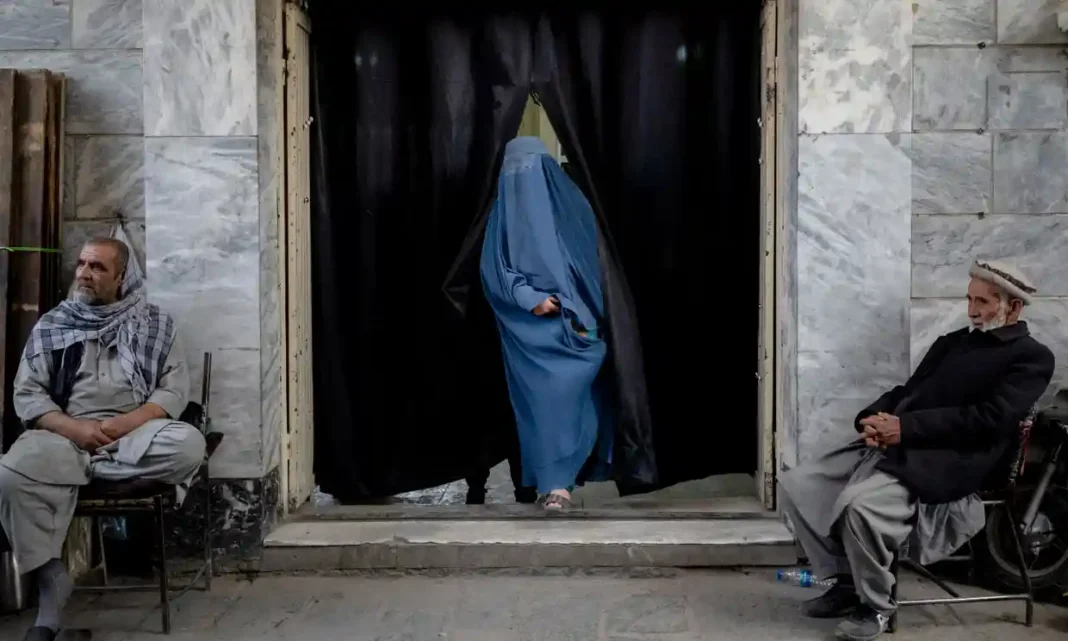Hazara communities in Afghanistan are being targeted in violent attacks by the Islamic State Khorasan Province (ISKP), Islamic State’s affiliate in Afghanistan, with more than 700 people killed in 13 attacks in the past year, according to a report by Human Rights Watch.
In the report, Human Rights Watch (HRW) accused the Taliban of doing little to protect Hazara and other religious minorities from suicide bombings and deadly attacks, and failing to provide adequate medical care and assistance to victims and their families, despite pledging to do so when they took power in August 2021.
A Taliban spokesperson said that the government had taken the “necessary measures” to protect the Hazara and that the report did not reflect the reality on the ground.
The ISKP have been behind attacks on Hazara mosques, schools, and workplaces across Afghanistan, said HRW.
“The issue isn’t that the Taliban is responsible for the violence. They’re responsible for not providing adequate security to their own people,” said John Sifton, Asia advocacy director at HRW. “If they’re going to act as the governing authorities, their first priority should be protecting their own people from violence by this insurgent group.”
The Hazara, a predominantly Shia Muslim ethnic minority group in Afghanistan, have been historically persecuted by the Taliban and other groups.
Sifton said that while the new Taliban government has become comparatively more accepting of the Hazara and other religious minorities, the ISKP, who have been rapidly gaining power in some areas of the country, continue to view all Shia groups as heretics and “enemies of Islam”.
ISKP has claimed responsibility for a series of attacks in April that targeted Hazara-majority schools as well as the largest Shia mosques. HRW said it fears that many attacks in the provinces are going unreported due to the Taliban’s tightened grip on media.
On 19 April, six people were killed and least 20 injured in a suicide bomb attack at Abdul Rahim Shahid high school in west Kabul. “There were dead bodies everywhere,” said a survivor.
Two days later, 31 people were killed and 87 injured when ISKP bombed Seh Dokan mosque in Mazar-e Sharif, one of Afghanistan’s largest Shia mosques, which has now shut down.
Later that month, 14 people were killed and 13 injured in multiple attacks targeting Hazara at their workplaces and in public in Samangan province and in Mazar-e Sharif city.
In Kabul, 120 people were killed and injured on 7 August while celebrating the Shia holiday of Ashura, UN Assistance Mission in Afghanistan reported.
The ISKP attacks on Hazara and other Shia and Sufi communities have become more systematic, Richard Bennett, the UN special rapporteur on the situation of human rights in Afghanistan, said in May. He added that they reflect “elements of an organisational policy” and bear “hallmarks of crimes against humanity”.
Taliban troops continue to fight ISKP forces, however no security measures have been implemented to protect Hazara from further attacks, Human Rights Watch said.
“We are not contesting that the Taliban is fighting ISKP. We’re simply asking that they do more to protect the community that is most at risk,” said Sifton.
The attacks have also effectively excluded Hazara from participating in public life, practising their religion or accessing education. “Most of my classmates have stopped attending school after the tragedy,” said an 18-year-old survivor of the Abdul Rahim Shahid high school bombing. “When the Taliban took power, instead of a class of 50, there were only 25. Now, only 10 to 15 kids are attending classes.”
One of his injured classmates is determined to return to school, but bullet shards in his feet have made it difficult to walk even a short distance. “If I am supposed to die, I will die, but so long as I am alive, I will go to school,” he said.
A Taliban spokesperson said: “As per the current government policy, all Afghans are equal in the sight of the law; there is no discrimination. The government has taken necessary measures for the security of Hazara and they are free to perform their rituals. Some individual incidents have taken place in all mosques, whether they belonged to Sunni Muslims or Shias. The Human Rights Watch should correct its report; it doesn’t reflect ground realities.”

